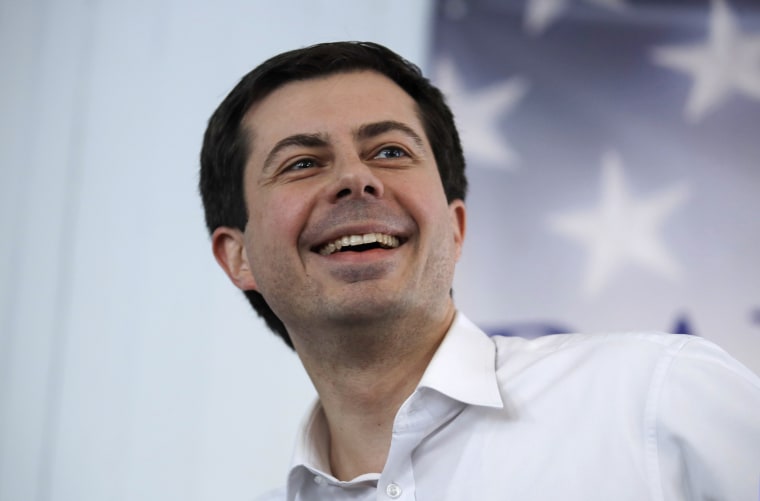WASHINGTON — With Pete Buttigieg's campaign saying he raised an impressive $7 million in the first fundraising quarter, the mayor of South Bend, Indiana, is looking more and more like a significant factor in the 2020 Democratic primary.
The main knock on his candidacy may be his lack of statewide or federal elected experience (South Bend’s population is only about 102,000). But it’s also worth noting that one fact about him is rarely treated as a liability: Buttigieg is openly gay and has been married to his husband, Chasten, since last June.
As recently as 2006, when Buttigieg was 24, more than half of Americans said they would be “very uncomfortable” (34 percent) or have “reservations” (19 percent) about a gay or lesbian person running for president.
That year, just five percent said they’d be enthusiastic about an LGBT candidate, according to an NBC/Wall Street Journal poll. An additional 38 percent said they’d be “comfortable.”
These days? A majority of Americans say they’re just fine with a gay candidate.
A combined 68 percent are either enthusiastic (14 percent) or comfortable (54 percent) with a candidate who is gay or lesbian.
What’s more, that jump isn’t just due to increasing tolerance among the younger voters whom Buttigieg, a millennial, can claim to represent.
The share of those younger than 35 who say they’re enthusiastic or comfortable with a gay candidate increased by 28 percentage points between 2006 and now, jumping from 47 percent to 75 percent.
And, while seniors are more likely to voice reservations about gay candidates, a majority (56 percent) now say they have no objections. That’s up from just 31 percent in 2006.


